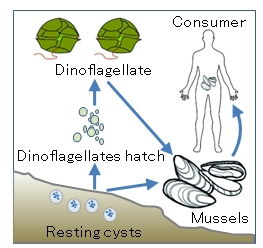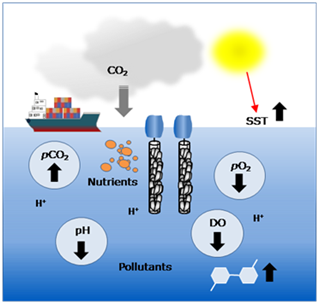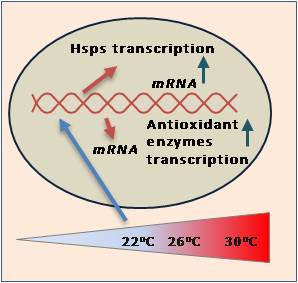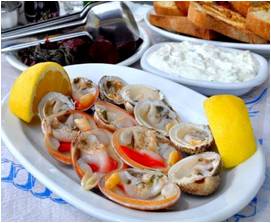So far good news for mussels' farmers, but global warming increases the uncertainty regarding the mussels’ food poisoning incidents in Greece
As Maria Kalaitzidou* and Dionysia Mintza* report, monitoring programs have been established by the Ministry of Rural Development and Food in Greece, regarding the health of live bivalve molluscs and aquatic animals, against the intrusion of possible pathogen carriers or vectors. These programs include several bivalve species from both farmed and wild populations sampled from different marine areas along the coastline of Greece. Referring to shellfish health, national legislation has been enforced in accordance with Council Directive 2006/88/EC, on animal health requirements for aquaculture animals and products, and on the prevention and control of certain diseases in aquatic animals, as well as the Commission Directive 2008/53/EC amending Annex IV to Council Directive 2006/88/EC with regards to Spring viraemia of carp (SVC). Moreover, Regulation 853/2004 of the European Parliament and of the Council and Regulation 627/2019 of Commission lays down specific hygiene rules for live bivalve molluscs intended for human consumption and establish a monitoring program. The monitoring program aims at early detection of marine biotoxins in the flesh of mussels, therefore preventing consumers from potential poisoning threats. The good news for the farmers is that, so far, bivalve molluscs poisoning is minimal in Greece. This could be explained by low incident reporting. However, there is a great consensus that global warming may accelerate the growth and distribution of pathogens, toxic phytoplankton and HABs around the world in marine environments, through the 21st century, affecting the health of aquatic organisms as well as humans. The latter increase the uncertainty regarding the food poisoning incidence as well as the health of molluscs, affecting Public Health and the economy.
*Dr. Maria Kalaitzidou is the technical manager for chemical methods of the National Reference Laboratory for Marine Biotoxins and other water toxins, at the Ministry of Rural Development and Food and national expert for marine biotoxins.
*Dr. Dionysia Mintza is the head of the department of Fishery Products, Milk and other Food of Animal Origin at the Ministry of Rural Development and Food and national expert for bivalve molluscs hygiene rules.







